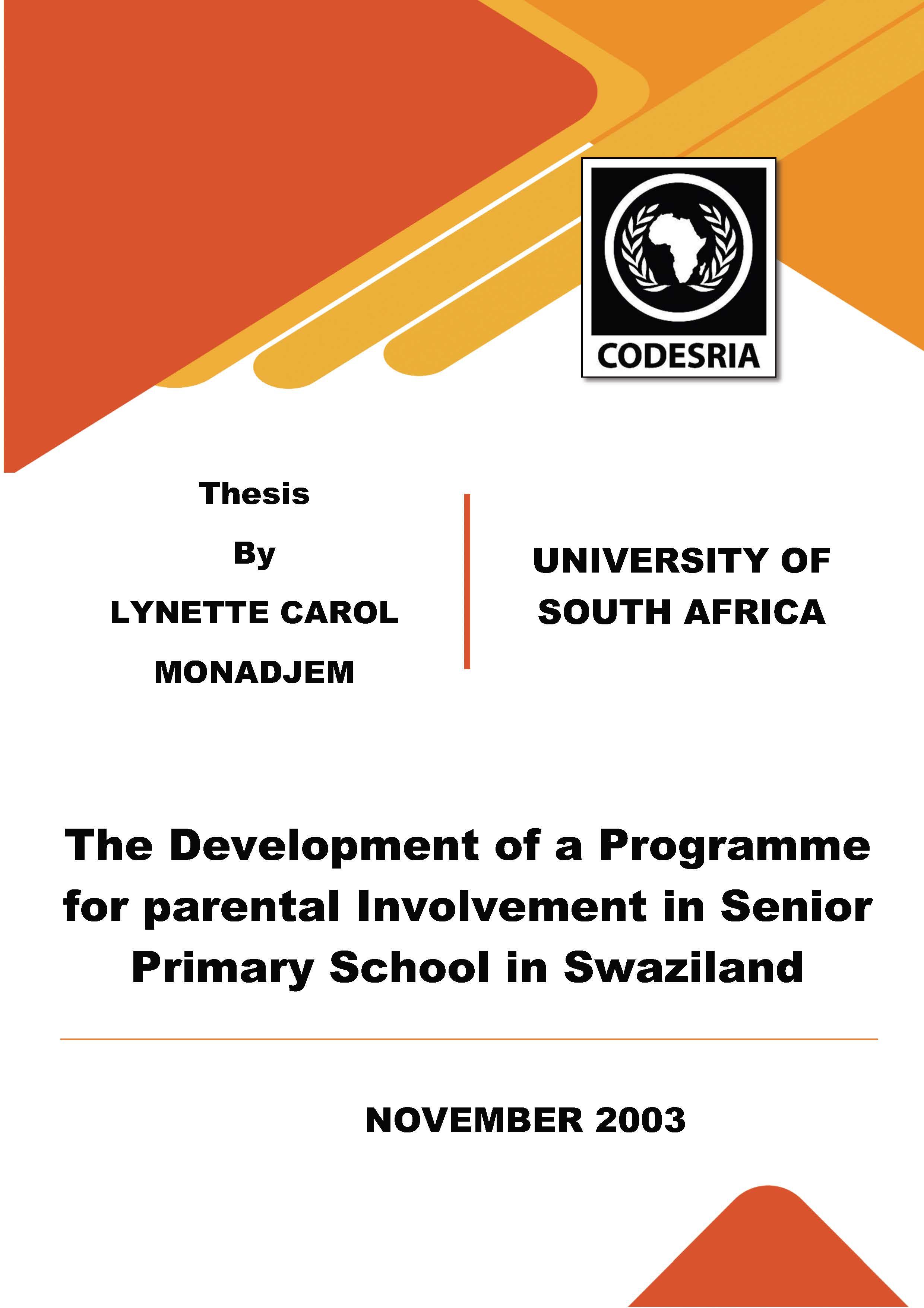The Development of a Programme for parental Involvement in Senior Primary School in Swaziland
Keywords:
parental Involvement, parental involvement programme, parental attitude, primary school, Swaziland, quantitative research, qualitative research, parental questionnaire, parent interviews, teacher interviewsSynopsis
Parental involvement (PI) greatly benefits learners of all ages. The implementation of a PI programme would provide an effective and affordable means to address the needs of learners in Swaziland. The purpose of this study was to develop a PI programme for urban primary education in Swaziland.
The literature revealed that while comprehensive PI programmes are most effective, PI in learning activities in the home and an appropriate parenting style are particularly beneficial and correlate more closely with learning success than family background factors. Nevertheless, a relationship between family background factors and PI exists. Furthermore there are numerous barriers to PI. However, the most important determinant of PI is the effort of teachers to involve parents. PI is particularly important at senior primary level, the level at which PI drops off spontaneously.
In order to gain a more complete understanding of PI in this community, which would form the basis for an effective PI programme, a combined quantitative and qualitative approach was undertaken. A parental questionnaire was used to test quantitatively the effects of family background factors on three measures of PI and to determine the ways in which parents were involved, their attitudes to the schools, and the schools' efforts to involve them. Teacher and parent interviews and focus discussions were conducted following a qualitative ethnographic approach.
The integrated quantitative and qualitative findings revealed a low level of PI. As a result of a lack of relevant policy, Swazi teachers had very little understanding of PI or their role in establishing it. Thus, schools generally practiced Swap's Protective Model such that parents had very few opportunities, and little encouragement, to become involved. Consequently, parents did not fully appreciate the importance of their involvement and did not always choose to become involved. The study revealed a number of barriers that further interfered. with their involvement.
The implications of the findings were discussed and recommendations for a PI programme that harnesses the strengths and addresses the weaknesses of this community were made. In order to improve educational practice, recommendations targeted each role player and type of PI separately.
Downloads
References
Adams, J. & van Harmelen, U. 2000. Methodology and approach to the life science project impact assessment and evaluation. In: Evaluating change: Life science project 1991-2000 (cd-rom}. Compiled by U. van Harmelen; J.
Adams; R. Avenstrup; M. van Graan; S. Murray & D. Wilmot. Windhoek: Ibis. p.11-40.
Ainley, J. 1995. Parents and schools: Changing relationships. Journal of Christian Education 38(2):33-46.
Allen Brough, J. & Irvin, J.L. 2001. Parental involvement supports academic improvement amongst middle schoolers: What research says. Middle School Journal 32(5):56-61.
Anderson, A.G. 1998. Parents as partners: Supporting children's mathematics learning prior to school. Teaching Children Mathematics 4(6):331-337.
Ascher, C. 1988. Improving the school-home connection for poor and minority urban students. Urban Review 20:109-123.
Ashton, J. & Cairney, T. 2001. Understanding the discourses of partnership: An examination of one school's attempts at parent involvement. The Australian Journal of Language and Literacy 24(2):145-156.
Baker, D.P. & Stevenson, D.L. 1986. Mothers' strategies for children's school achievement: Managing the transition to high school. Sociology of Education 59:156-166.






